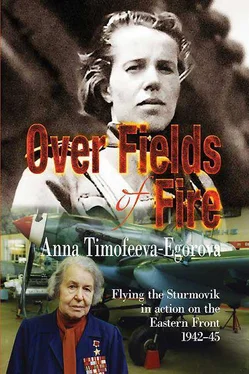“Tomorrow… And what am I supposed to do today?”
The guy smiled, “To the theatre, for example. An opera. The last show is on — Carmen — and then the theatre will be evacuated. It’s here in the centre, just nearby.”
I accompanied the guy to the city voencomat , wished him a victorious homecoming and felt some envy that he was already going to the war to defend the motherland. And I indeed went to the theatre then, but I remember that I was seeing the stage as if through frosted glass. Everything seemed vague and misty but after all I was sitting in the fifth row of a half-full auditorium. I didn’t care much about the show: my thoughts were far, far away. Spain, toreadors, passion and love… It wasn’t touching and stirring me. I watched indifferently as the beautiful Carmen began her famous habanera but at the highest note the orchestra suddenly broke off and an unexpected silence fell onto the hall. The singer froze with her mouth open in bewilderment. A small scrawny man walked across the stage, stopped just before the orchestra pit and rumbled into the silence, “Comrades, it’s an air-raid warning! All of you are requested to go down into the air raid shelter. But please maintain order.”
Such was the finale of that performance… From the air raid shelter I returned to the aeroclub premises and settled in for the night in one of the offices on a cushion upholstered with black leatherette.
In the morning someone knocked on the door and a broad-shouldered well-built man in Air Force uniform immediately appeared in the door. There were three cubes on his collar patches: hence he was a senior lieutenant. He didn’t notice me straightaway for I was lying on a cushion behind a barricade of desks.
“What are you doing here?” He asked sternly.
“I am from Moscow, I have orders to report to the local aeroclub. And here I am, waiting for someone in charge.”
The military man’s face cleared: “Consider us here on the same business. I’m looking for someone in charge too. I’ve come to pick up pilots…” here the senior lieutenant made an expressive gesture with his hand — it was clear that our hosts had long left the palace of aviation…
“What shall we do then?” I asked him anxiously, and at that moment a sudden idea came to my mind. “So you’ve come to find pilots? Take me! Here are my papers. They are in complete order!”
The senior lieutenant read my orders from the Central Aeroclub attentively. “Well, your references are suitable. I’ll take you, Egorova. But we have to make all the arrangements legally! Let’s go to the voencomat .”
A battered pickup drove us to the spot. Making our way through the dense crowd of mobilised men we presented ourselves to the commissar. But he, finding out what the matter was, just shook his head: “What’s she got to do with us? She’s come from Moscow — let her get back there”.
“Now don’t drag your feet, major! We need flyers badly”, the senior lieutenant pressed.
“I can’t, I have no right to spread anarchy”, the military commissar persisted.
The argument went nowhere. We had to back down. Listarevich (the senior lieutenant had managed to introduce himself) calmed me down: “Forget about these bureaucrats. Let’s go to our unit straightaway, we’ll sort everything out on the spot.”
We visited a military hospital on our way and it came out that the Senior Lieutenant Listarevich had picked up two pilots recovered from wounds, a mechanic who had lost his unit and a pilot from the OSOAVIAHIM. Now he cheered up, for he was not coming back to his unit empty-handed! We were rushing in our pickup to some of the 130th Detached Aviation Signals Squadron of the Southern Front. The senior lieutenant had bee a pilot himself and was doing his best to prove it driving his pickup. He sped as if in a U-2, almost 100 kilometres an hour, without thinking much about the men sitting in back…
At last, the aerodrome — or rather a landing area near Chaplino station in the village of Tikhiy. Covered with dust and pretty well exhausted from the bumpy ride we presented ourselves before the commanders’ eyes straightaway.
“Not a lot of troops…”
“The aeroclub was evacuated, Comrade Major”, the senior lieutenant defended himself, “but I brought you some eagles.”
“Eagles?” The Major asked again and gave me a somewhat suspicious and sidelong look.
Only now I did notice an Order of the Red Banner on the commanding officer’s chest and rejoiced: it meant he was a combatant, so I couldn’t afford to miss my chance. That was why I boldly reported “Former Kalinin aeroclub pilot instructor Anna Egorova reporting for duty.”
“But there’s been no order yet to draft women to the front.”
“Do I really need an order to fight for the motherland?”
“That’s true…” The major looked at me narrowly.
“Have you got your papers, Egorova?” The Major’s voice now sounded encouraging.
“Absolutely!”
I quickly put on the desk my pilots’ certificate, passport, Comsomol membership card and the orders to the Stalino aeroclub. Having thoroughly examined the papers the Major turned to a captain nearby: “Grishchenko! You’ll fly off to Simferopol tomorrow. You have to fly anyway, and while you’re at it you’ll check Egorova’s flying technique.”
I intercepted Lisarevich’s glance. My pleased ‘recruiter’ gave me a wink, “you see, everything is alright — you may consider yourself a pilot of the Southern Front’s 130th Detached Aviation Signals Squadron”.
The squadron commander was Major Boulkin and all the pilots were veterans who had flown the Polikarpov I-16 in Spain 70 70 Translator’s note — during the Spanish Civil War 1936-1939 many Soviet pilots fought on the Republican side.
. My eyes grew wide when I saw them all in brand-new uniforms and all with decorations. I thought — where am I? They fought in Spain — they are all heroes’ heroes! And for some reason they’d been transferred to the Signals Squadron… Grishchenko was deputy commander of the 130th Squadron and head of the flying service. For some reason he’d taken a great dislike to me (I didn’t know why) but our flight from Tikhiy Village to Simferopol went safely and my position was approved. Later, when I had already settled down well in the Signals Squadron I was told that Petr Ivanovich Grishchenko used to be a fighter pilot who had been discharged from flying after an accident but after the war had broken out he’d obtained permission to become a pilot in the 130th Squadron. The deputy squadron commander flew courageously and he was entrusted with the most crucial tasks. Once in 1942 near Lisichansk Grishchenko’s plane was intercepted by four Messerschmitts but Petr manoeuvred his defenceless koukourouzniki 71 71 Translator’s note — ‘cropduster’ — a somewhat contemptuous nickname for the U-2 biplane, that was used in agricultural operations.
so skilfully and deftly that the Fascists couldn’t do anything to it and went home. Actually, in his riddled plane the lieutenant didn’t make it to the aerodrome — he landed in a bog and nosed over. Our soldiers helped to drag the machine out, the pilot repaired it himself, completed his mission and returned to the squadron. When reporting what had happened the former fighter pilot acknowledged: “It appears the U-2 is a plane too — nothing to shoot with but it’s alright for ramming…”
Such was the plane I received on the third day of my time at the frontline. Not a high-speed fighter, not a dive-bomber, just a U-2. The plane I was attached to by my already long-term service, the plane that had undergone its second birth during the War and was redesignated the Po-2 after its designer Polikarpov. That was the plane that earned glory, the admiration of the frontline troops and the hatred of the enemy.
Читать дальше












